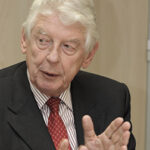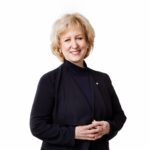During the last two days they have discussed different key issues related to the current process towards democracy as part of the final LEND Activity of the first phase of the LEND (Leaders Engaged in New Democracies) Network that has been implemented with the financial support of the Government of Sweden. This face-to-face meeting has been organized by the Club de Madrid in cooperation with Community of Democracies, on 10-12 April. It has followed the meeting with Moldovan representatives that took place in Chisinau on 15-17 October 2012 and the meeting with Tunisian representatives in Tunis on 20-22 January 2013.
This last face-to-face meeting has brought to Stockholm a selected group of Tunisian and Moldovan representatives part of the LEND Network to continue the discussions on the key issues that both countries face in the consolidation of the democratic transitions. The meeting has received funding from the Swedish International Development Cooperation Agency (SIDA), and the United States Agency for International Development.
Club de Madrid Members, Prime Minister of the Netherlands (1994-2002), Wim Kok, Prime Minister of Canada (1993), Kim Campbell, and Prime Minister of Romania (1989-1991), Petre Roman, have joined Maria Leissner, Secretary General of Community of Democracies together with international experts, in the discussions with high level political and civil society representatives in this forum that supports Tunisia and Moldova in its efforts to build a democracy that delivers. Among different and complex issues debated during the meeting, discussions took place on the issues of:
- The Role of Judiciary Reform and Transitional Justice in consolidation of Democratic Systems
- The Role of Democracy in Economic Development – the challenges of overcoming corruption and ensuring regional economic cooperation
- Government Change and Coalition Building in crisis situations
Furthermore, participants of the meeting and Club de Madrid Members presented the discussions of their debates to the Swedish Minister of Foreign Affairs and Club de Madrid Member, Carl Bildt, during a reception on 11th April at the Ministry of Foreign Affairs. The purpose of these meetings is to allow participants of the online virtual platform to have face-to-face exchanges with Club de Madrid Members and the Mentors/ Advisors that actively participate in the Network in the cyberspace.
The LEND initiative leverages expertise from the Club de Madrid and 21st century technologies developed by Google, Spontania and OpenText to connect leaders who have successfully navigated the challenges of democratization with leaders in emerging democracies. It will augment face-to-face meetings with ongoing peer-to-peer exchanges via a sophisticated, secure virtual platform.
Beginning in 2012, the project is aimed to provide peer advice, peer support and capacity building to political leaders and policy makers in Eastern Europe and North Africa. The LEND Network will generate the following outputs:
- A secure, self-perpetuating community that operates in a largely virtual setting with the goal of sharing information and expertise about democratization.
- The project will deploy tools for online voice, video, and text communication along with new translation technology to address the cost and logistical barriers that have limited such efforts in the past.
- Sustained participation from a user base that brings together world class experts representing more than twenty countries.
- The Two face-to-face meetings in Moldova and Tunisia that will bring together members of the Club de Madrid and participants of the LEND Network.
The LEND Network is filling a crucial need. Currently, there is no mechanism to facilitate real-time information sharing between leaders in new democracies and leaders that have successfully navigated the challenges of democratization. A global forum for exchanging information and expertise on democratization will support leaders as they work to build strong, accountable institutions and establish the rule of law.




